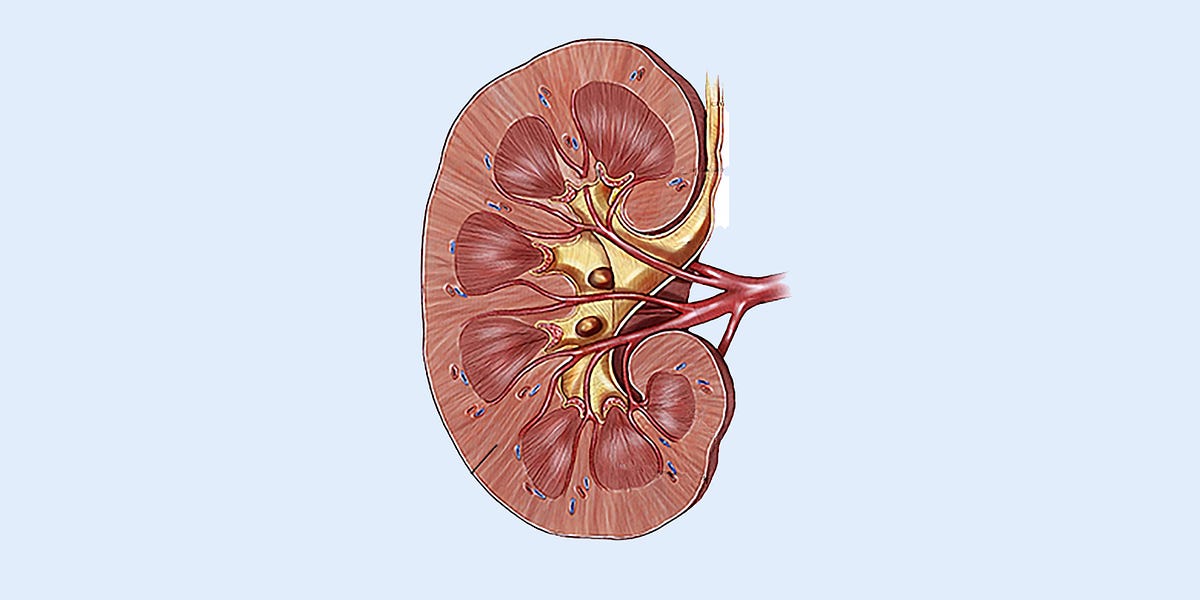
In other words, how many people will read @ScottAlexander's "My Left Kidney" and donate a kidney who wouldn't have otherwise?
I realize that could be a hard number to pin down. I'll add to the FAQ as questions arise in the comments.
FAQ
1. Does the kidney have to actually come out before it counts?
Let's say yes.
2. How do you verify that?
By default I'll believe people. Voice your suspicions in the comments!
3. What if someone had already started the process and Scott merely inspired them to finish?
We'll do the obvious thing: estimate probabilities and use the expectation of the delta from the Scottless counterfactual.
4. By when?
We'll discuss in the comments. I'd like the horizon to be long enough to capture everyone but also not let the market drag out indefinitely. So if the rate of new donations seems to be asymptotically approaching zero such that we can be very confident in one of the answers, we'll go ahead and resolve it.
5. How does 61 count as "a hundred-ish"?
It was tricky trading off fidelity to the English phrases and usefulness of bucket sizes. I may tweak these (suggestions solicited!) so don't bet too heavily until I confirm they're set in stone. (PS, oh, I guess you can't edit them! I guess they're set in stone then!)
Resolution Criteria
I'll defer to Scott and use my own judgment if Scott doesn't have an answer. I won't trade in this market. That way I can make any judgment calls without conflict of interest.
Related Markets
https://manifold.markets/CarsonGale/will-i-develop-either-chronic-kidne
https://manifold.markets/IsaacKing/will-there-be-a-legal-way-to-sell-o
https://manifold.markets/CarsonGale/will-there-be-a-waiting-list-for-ki
For reference, according to UNOS, it appears that yearly kidney donations by living people is somewhere between 5 and 6 thousand per year in the US for the last decade
For my own reference, I took some notes on how I should've/could've structured this market: https://manifold.markets/dreev/how-many-distinct-schemes-are-there
@BenjaminCosman Good question. I see two approaches:
Pr(pivotal). Taking FAQ3 literally, we estimate the probability Scott was pivotal. For example, if Kyle the kidney donor was inspired by 3 people including Scott but would've donated with or without Scott's inspiration in particular, then Kyle doesn't count. If we guess a 50% chance without Scott, then Kyle counts as 0.5 inspired donors.
Divvy the credit. In this case if Kyle was equally inspired by 3 people including Scott then Kyle counts as 0.33 inspired donors.
Any suggestions for which is better? Let's err towards what's easiest to find out, not just what version we'd ideally want.
@dreev Well if I were restarting this market from scratch, I'd just count the number of people who cite Scott at all, rather than trying to divvy up credit or compute probabilities. But I'm not sure you can do that here based on the existing criteria and FAQ. The easiest way that would still roughly capture what you're looking for might be "last straw" accounting - ask people who the most recent inspiration was, and count as 1 for Scott and 0 otherwise.
@dreev That's going to seriously underestimate it.
I don't think I can bet until the counting mechanism is settled, so I can discount properly.
@dreev That's certainly the best idea I can think of. If he agrees to tell you, that’s at least some kind of metric.
@akshitapurna Super fair. Maybe Scott will end up with a sense of this. Like if he learns of a case like that via some coincidence then he can infer that there are other such cases. I'm open to interpreting this either as "confirmed cases" or "our/Scott's best estimate of total cases".
